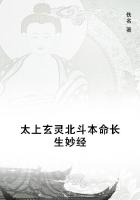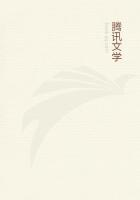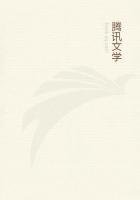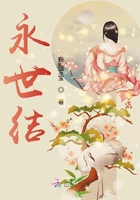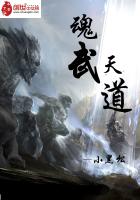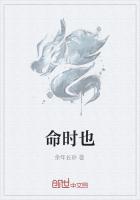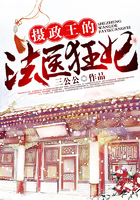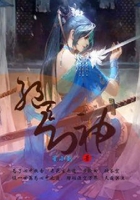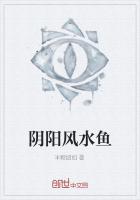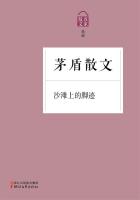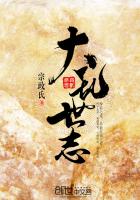I
Would that I could hope for the luck of that Chinese scholar known to Japanese literature as "Rosan"!For he was beloved by two spirit-maidens,celestial sisters,who every ten days came to visit him and to tell him stories about butterflies.Now there are marvelous Chinese stories about butterflies --ghostly stories;and I want to know them.But never shall I be able to read Chinese,nor even Japanese;and the little Japanese poetry that I manage,with exceeding difficulty,to translate,contains so many allusions to Chinese stories of butterflies that I am tormented with the torment of Tantalus...And,of course,no spirit-maidens will even deign to visit so skeptical a person as myself.
I want to know,for example,the whole story of that Chinese maiden whom the butterflies took to be a flower,and followed in multitude,--so fragrant and so fair was she.Also I should like to know something more concerning the butterflies of the Emperor Genso,or Ming Hwang,who made them choose his loves for him...He used to hold wine-parties in his amazing garden;and ladies of exceeding beauty were in attendance;and caged butterflies,se free among them,would fly to the fairest;and then,upon that fairest the Imperial favor was bestowed.But after Genso Kotei had seen Yokihi (whom the Chinese call Yang-Kwei-Fei),he would not suffer the butterflies to choose for him,--which was unlucky,as Yokihi got him into serious trouble...Again,I should like to know more about the experience of that Chinese scholar,celebrated in Japan under the name Soshu,who dreamed that he was a butterfly,and had all the sensations of a butterfly in that dream.For his spirit had really been wandering about in the shape of a butterfly;and,when he awoke,the memories and the feelings of butterfly existence remained so vivid in his mind that he could not act like a human being...Finally I should like to know the text of a certain Chinese official recognition of sundry butterflies as the spirits of an Emperor and of his attendants...
Most of the Japanese literature about butterflies,excepting some poetry,appears to be of Chinese origin;and even that old national aesthetic feeling on the subject,which found such delightful expression in Japanese art and song and custom,may have been first developed under Chinese teaching.Chinese precedent doubtless explains why Japanese poets and painters chose so often for their geimyo,or professional appellations,such names as Chomu ("Butterfly-Dream),"Icho ("Solitary Butterfly),"etc.And even to this day such geimyo as Chohana ("Butterfly-Blossom"),Chokichi ("Butterfly-Luck"),or Chonosuke ("Butterfly-Help"),are affected by dancing-girls.Besides artistic names having reference to butterflies,there are still in use real personal names (yobina)of this kind,--such as Kocho,or Cho,meaning "Butterfly."They are borne by women only,as a rule,--though there are some strange exceptions...And here I may mention that,in the province of Mutsu,there still exists the curious old custom of calling the youngest daughter in a family Tekona,--which quaint word,obsolete elsewhere,signifies in Mutsu dialect a butterfly.In classic time this word signified also a beautiful woman...
It is possible also that some weird Japanese beliefs about butterflies are of Chinese derivation;but these beliefs might be older than China herself.The most interesting one,I think,is that the soul of a living person may wander about in the form of a butterfly.Some pretty fancies have been evolved out of this belief,--such as the notion that if a butterfly enters your guest-room and perches behind the bamboo screen,the person whom you most love is coming to see you.That a butterfly may be the spirit of somebody is not a reason for being afraid of it.Nevertheless there are times when even butterflies can inspire fear by appearing in prodigious numbers;and Japanese history records such an event.When Taira-no-Masakado was secretly preparing for his famous revolt,there appeared in Kyoto so vast a swarm of butterflies that the people were frightened,--thinking the apparition to be a portent of coming evil...Perhaps those butterflies were supposed to be the spirits of the thousands doomed to perish in battle,and agitated on the eve of war by some mysterious premonition of death.
However,in Japanese belief,a butterfly may be the soul of a dead person as well as of a living person.Indeed it is a custom of souls to take butterfly-shape in order to announce the fact of their final departure from the body;and for this reason any butterfly which enters a house ought to be kindly treated.
To this belief,and to queer fancies connected with it,there are many allusions in popular drama.For example,there is a well-known play called Tonde-deru-Kocho-no-Kanzashi;or,"The Flying Hairpin of Kocho."Kocho is a beautiful person who kills herself because of false accusations and cruel treatment.Her would-be avenger long seeks in vain for the author of the wrong.But at last the dead woman's hairpin turns into a butterfly,and serves as a guide to vengeance by hovering above the place where the villain is hiding.
--Of course those big paper butterflies (o-cho and me-cho)which figure at weddings must not be thought of as having any ghostly signification.As emblems they only express the joy of living union,and the hope that the newly married couple may pass through life together as a pair of butterflies flit lightly through some pleasant garden,--now hovering upward,now downward,but never widely separating.
II

